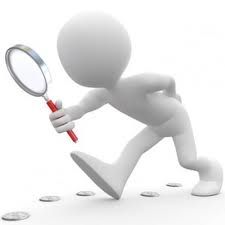Relationships
Inspect Thyself
Interrupting Dysfunctional Relationships Starts with Moments of Inspection
Posted July 26, 2012
In the Ostrich Effect, people look away from that which makes them anxious, setting in motion a sequence of events that get them stuck with difficult work situations, problems, relationships and people. This post focuses on what it means to interrupt that process. It begins with reversing the act that led them into the Ostrich Effect, that of looking away. It begins with an act of inspection.
Mike has just stalked away from his partner Andy. It was another in a line of skirmishes between the founding partners of a consulting practice. Mike sits in his office, upset. He knows that something is askew in their interactions. So he thinks about it. He thinks about the buyout process thus far. He and Andy, with and without the other partners, have figured difficult things out before. But these last few weeks have been different. The conversations are different. There is too much anger. They keep having the same conversation, and it always ends badly, with someone lashing out and someone else getting hurt. Mike asks himself questions: Why is this process so miserable? Why do we always have this same conversation? What am I missing here? Why are we so upset?
There are moments when we walk down a road and trip over an object we cannot quite see. We have a choice here. We can keep on going, shrugging it off, perhaps rubbing our foot in pain or annoyance. Or we can bend down for an inspection, in order to figure out whether we tripped over something valuable and important or barely worth noticing. Sitting in his office, Mike chooses to bend down to inspect a moment that has tripped him up. It is this inspection, sometimes brief and other times lengthy, that determines whether people maintain or interrupt the Ostrich Effect.
There is some irony here. The Ostrich Effect is triggered by very particular moments, in which people glimpse and then turn away from something important. In those moments, they know something is wrong. They might have shocks of revelation about some larger truths. They turn away from those truths, which they then ignore and bury. They distract themselves with skirmishes elsewhere. Andy, Mike’s partner, did exactly this. There was a moment when he knew—truly knew—that he missed Mike. But he could not face that particular truth; it just made him too anxious. So he distracted himself by picking fights with Mike. He turned away from the moment. Mike, however, makes another choice. He decides to pay attention to his moment of insight. In so doing, he leads himself, and ultimately Andy, back to an underlying truth. This is poetic justice. The moments that stand out for us, which we avoid, get us in trouble; the moments that we make stand out for us, which we trip over and hold up to inspect, rescue us.
How do we recognize these other moments? How do we know when we've stumbled over something important to inspect? We have to follow the emotions. When people import emotions triggered in one place into other places, the emotions in those other places are outsized. There is just too much anger, resentment, sadness, frustration. It is not that the emotions are wrong; they are just too much, like gallons of water poured into quart containers. The emotions spill over; they mess everything else up. They are difficult to deal with. But they are also clues. When we trip over too much emotion, too often and too quickly felt, we know that we need to stop and see what lies hidden beneath.
Inspections of this sort require people to make internal shifts. They need to step away emotionally from situations and turn thoughtful eyes upon themselves and others. This is not a simple matter. It can take time to make this shift. The shift is difficult. The weight of the fear of what they avoid presses down upon them and they rush headlong, unaware of all that they trip over. Andy is like this. Andy does not pause, step outside himself and become aware of his emotions and behaviors. His hurt and anger drive him onward. He is not slowed by self-awareness. Mike has more possibility here. He can step away from the driving action. He can inspect what lies beneath.
Inspections occur in the moments between pausing the action of the Ostrich Effect and speaking. These inspections are crucial. They enable us to begin to articulate what we have only sensed, that something is awry in ourselves or our relationships. Like the detective who knows that a clue matters but doesn't know how or why, we stop and think for a bit. We decide that the clue has some meaning. We're not yet aware, probably, that a crime of sorts has been committed: that we have framed others or ourselves been framed; are working on counterfeit problems; are damaging ourselves or others; are pulling away or being pulled away from what we most desire.
We cannot yet put these crimes into words. We usually need some help to get outside of ourselves and our narratives. But because there is a distress signal that gets heeded, because there are moments of pause and subsequent inspections, we can now speak.
This is actually more profound than it seems. In the Ostrich Effect people turn away from and do not speak directly of the emotions that grip them. They avert their gaze, distract themselves with something else that becomes problematic and cannot be resolved. What lies beneath them remains unspoken. That silence drives the Ostrich Effect. Loosening its grip begins with the moments that we speak what has not been spoken.



